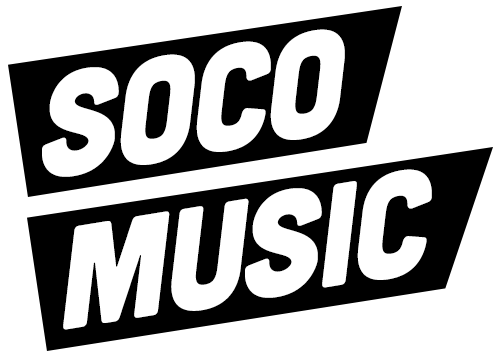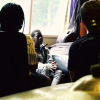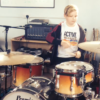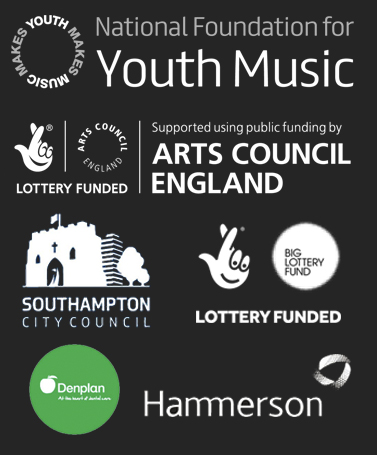On the 15th May 2017 The CHAOS Network hosted an afternoon of discussion and exploration about how, as artists and arts organisations, we can better measure the impact of our work. The session came out of a conversation from a previous Network meeting, and it was felt that a focused session, that included representatives from local authority, funding bodies, the commissioning unit and academia would be useful for all parties.
The CHAOS Network began in 2010 to provide an opportunity for creatives in the city to get together and talk, debate, share and promote the cultural offer in Southampton. CHAOS stands for Creative, Heritage and Arts Organisations of Southampton. Its inception coincided with SoCo Music Project taking on a new open creative space in the city and identifying a need for networking for creative in the city. Now a rich community of practice, the CHAOS Network has always been an open forum and welcomes new members from all creative backgrounds.
Creative practitioners and organisations in the city deliver a wide range of activities, many of which have a strong social impact. At a time where accessing funding is becoming more challenging, and local authorities are moving toward more commissioning based models, it’s becoming more important than ever to measure and evaluate the role of the arts in our communities. It is often the case that we can provide stories of how engagement with arts, music, theatre, film and more can improve mental health, enhance life chances, aid recovery, and even save lives. Often, however, these stories are anecdotal and lacking in clear evidence. How can we take these stories, these life improving activities, and ensure we are measuring and evaluating with credibility? Strong evaluation helps us to understand (and to learn from) the effectiveness of our work while also providing evidence of its impact. Where this impact can be aligned to local/regional/national priorities, it can put us in a strong position to access funding, commissioning and contracts that look to address these priorities. This could include a wide number of agendas, such as employability, health and wellbeing and behavior change.
The Measuring the Impact of the Arts event in May was attended by a cross section of artists/arts organisations, local commissioners and academics. A session on evaluation and frameworks was led by David Walters from the Winchester University Centre for Arts as Wellbeing, and city priorities and outlined by Moraig Forrest-Charde from the Southampton Integrated Commissioning Unit and Councillor Dave Sheilds, the Chair of the local Health and Wellbeing Board and cabinet member for Health.
Rebecca Kinge, a Southampton-based community organiser, coordinator for the emerging Creative Places project and Director of The Southampton Collective Community Interest Company was in attendance and has provide some useful notes from the event:
David Walters from University of Winchester gave us summary of his background and experience. Having been a musician he recognised that ‘things happen in an audience’ and he went on to work with gay men with AIDS and HIV in New York City and set up a community choir, where life and death was celebrated. Seeing the powerful impact of music making, he later established a community music venue in Hampshire (CODA Music Centre) which worked with everyone, formal education and informal music making. He then moved into the academic world, setting up a centre to study arts intervention in health and social care.
Points from David’s presentation:
Commissioners are cautious, they need evidence to support their decisions about investing in services. David made a number of points about how evaluation is included:
- Often evaluation is tacked on at the end because the artist sees a need to demonstrate a particular point.
- However, evaluation is subjective, and can show unintended outcomes and impacts. An objective evaluation has strength and power.
- Good evaluation should be unique to every project. Much of the work takes place at the beginning.
- Evaluation needs to change as you go along. It is important to try and recognise at the start where the pinch points may be, where the evaluation process may need to change direction.
- Evaluating in an arts context can be challenging, it may not always be clear what the impacts are a direct result of the work that the artist is doing and what is a result of the environment around or some other factor.
- Reflective practice is to be encouraged.
- Wellbeing can be subjective. Universities can help with measurement techniques.
- There are a number of evaluation techniques, quantitative, qualitative and case studies. Mixed methods are increasingly encouraged and seen as valid.
- Economic evaluation. There is some strong cost benefit analysis of the impact of the arts. Dr Simon Opher made powerful argument about this, see this Artlift case study and BBC article here.
- David also mentioned evidence that singing can help with chronic breathing and how the perception of pain can be changed.
- Clearly define what went into a project, so that it can be replicable. Being able to replicate the work is important to commissioners. It is necessary to be clear about the skills that go into a project, and not just those that are particular to an individual who is involved in delivery.
- Moraig Forrest-Charde (from Southampton Integrated Commissioning Unit) talked about the importance of knowing who the audience is, understanding the commissioner. Commissioners may have very little knowledge of arts interventions, so explain it clearly.
- Dave Shields (Councillor with Cabinet responsibilities for Health and Wellbeing) talked about the other alternative interventions that may address the same issue, e.g. employment services, policing.
Representatives from the Southampton Integrated Commissioning Unit provided an outline of city priorities. These included the reduction of loneliness and isolation, helping those furthest from the labour market to move towards employment, and behaviour change (including tackling obesity and smoking cessation). As mentioned above, commissioners are cautious and would require strong evidence that arts interventions are effective at tackling these priorities. It was suggested that an advocacy document that highlights the positive work in the city would be useful, and that a priority for arts organisations should be to engage with the wider community sector. Commissioners and councillors are happy to continue this discussion and would welcome communications from organisations and individuals highlighting potential innovative solutions to city priorities.
There are many useful websites and tools that can help us to better evaluate our work, here is a selection:
- Public Health England Arts for Health and Wellbeing Evaluation Framework. Here is an important framework developed by Daykin and Joss. It provides guidance on appropriate ways of documenting the impacts of arts for health and wellbeing, whether through small scale project evaluations or large scale research studies. https://www.gov.uk/government/publications/arts-for-health-and-wellbeing-an-evaluation-framework
- Google scholar for accessing existing research and evaluation.
- www.creativeandcredible.co.uk Arts and Health evaluation resource, tools, tips, guidelines for evaluating Arts & Health projects.
- The Arts Observational Scale (ArtsObS) is a tool for the evaluation of performing arts activities in healthcare settings. Downloadable and useful tool to measure the effect of an arts intervention.
Other useful tools for evaluation and measuring the impact of the arts/community activity include:
Inspiring Impact
Evidencing Impact Value Calculator (created for social housing but can be applied more widely to calculate social value)
http://www.hact.org.uk/value-calculator
Adrienne Pye, Senior Consultant for Evaluation at the Audience Agency (www.theaudienceagency.org) recommended the Evaluation Toolkit from ixia, public art think tank http://ixia-info.com/research/evaluation/
It was agreed that this event was the starting point, and that the conversation should continue. If you would like to be part of this conversation please contact me at: [email protected]






